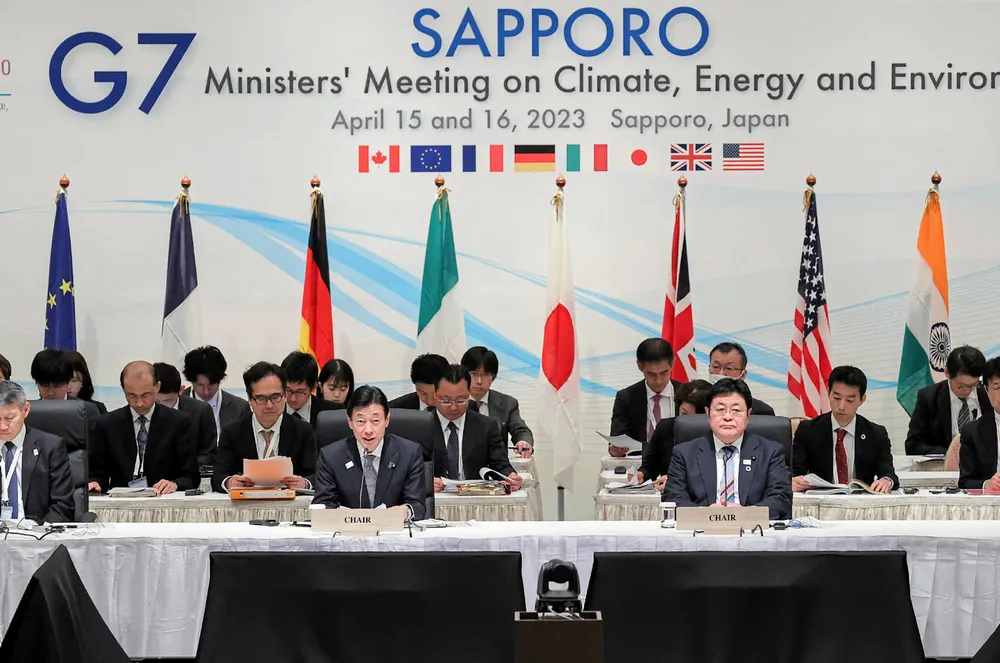G7 climate ministers pledge to develop a global clean hydrogen market based on international standards and certification
Final communique also pushes back on host Japan’s plans to label the burning of ammonia in coal-fired power plants as good for the planet
